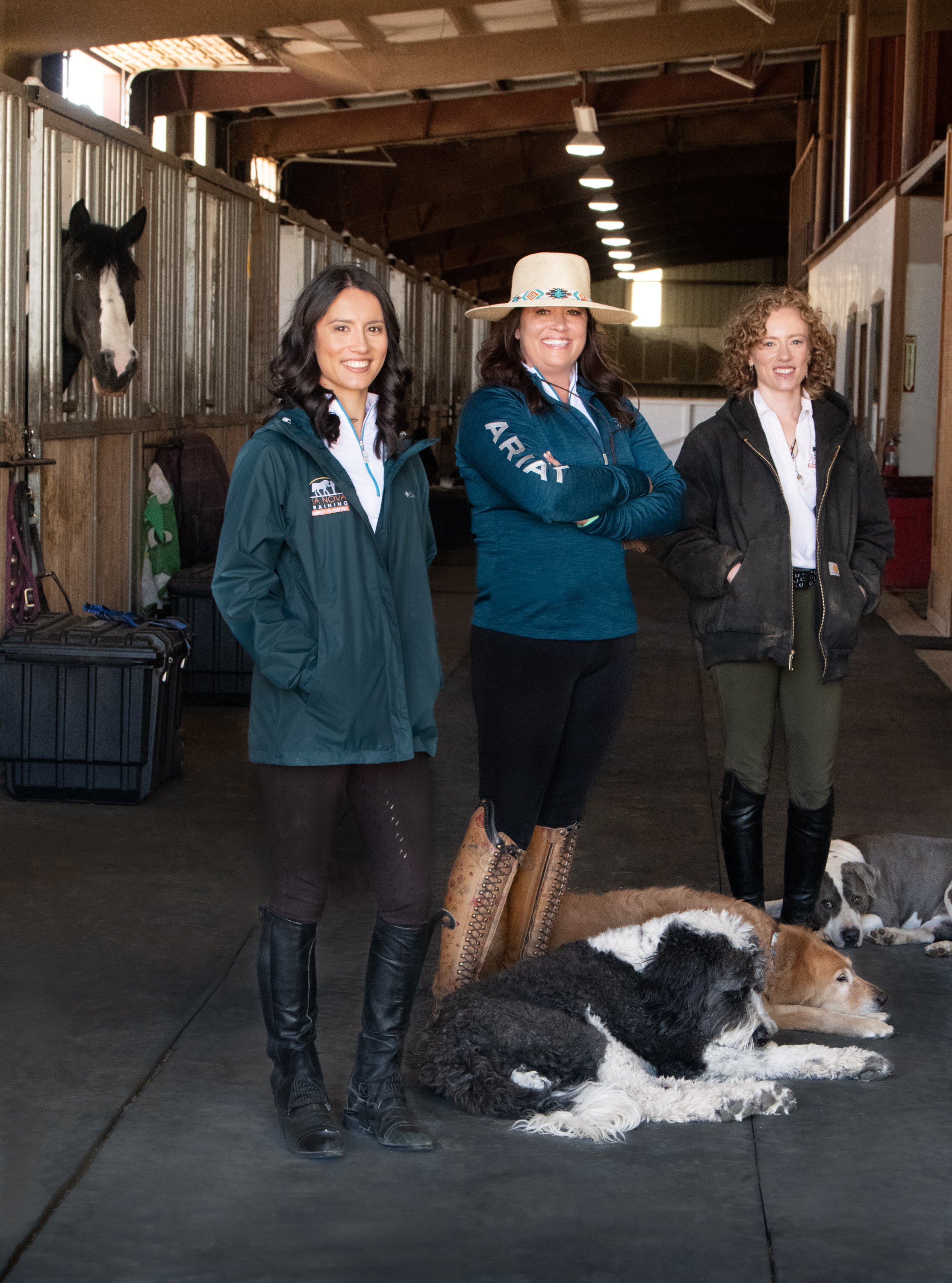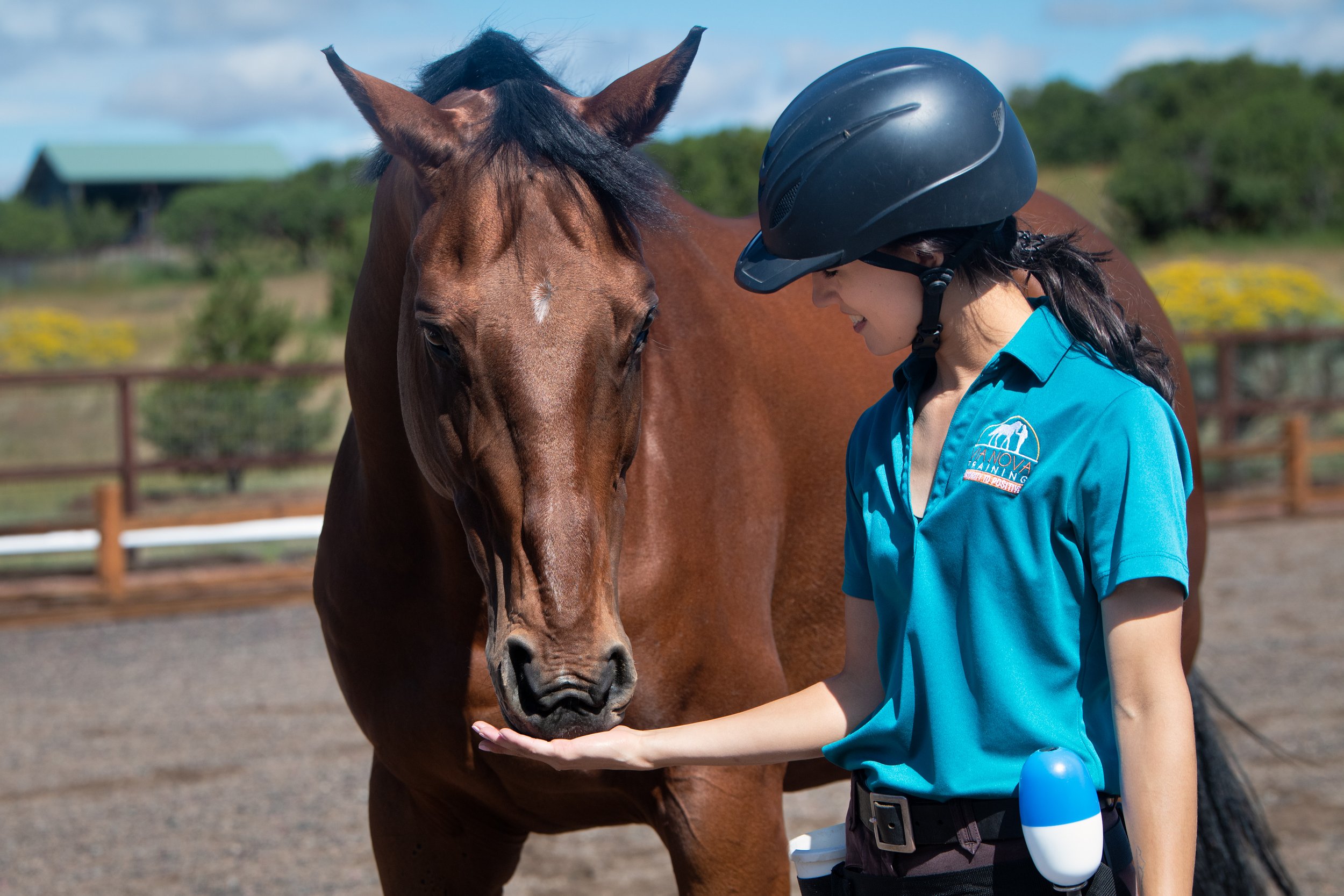Priority to Positive, The future of sport horse training
Priority to Positive,
The future of sport horse training
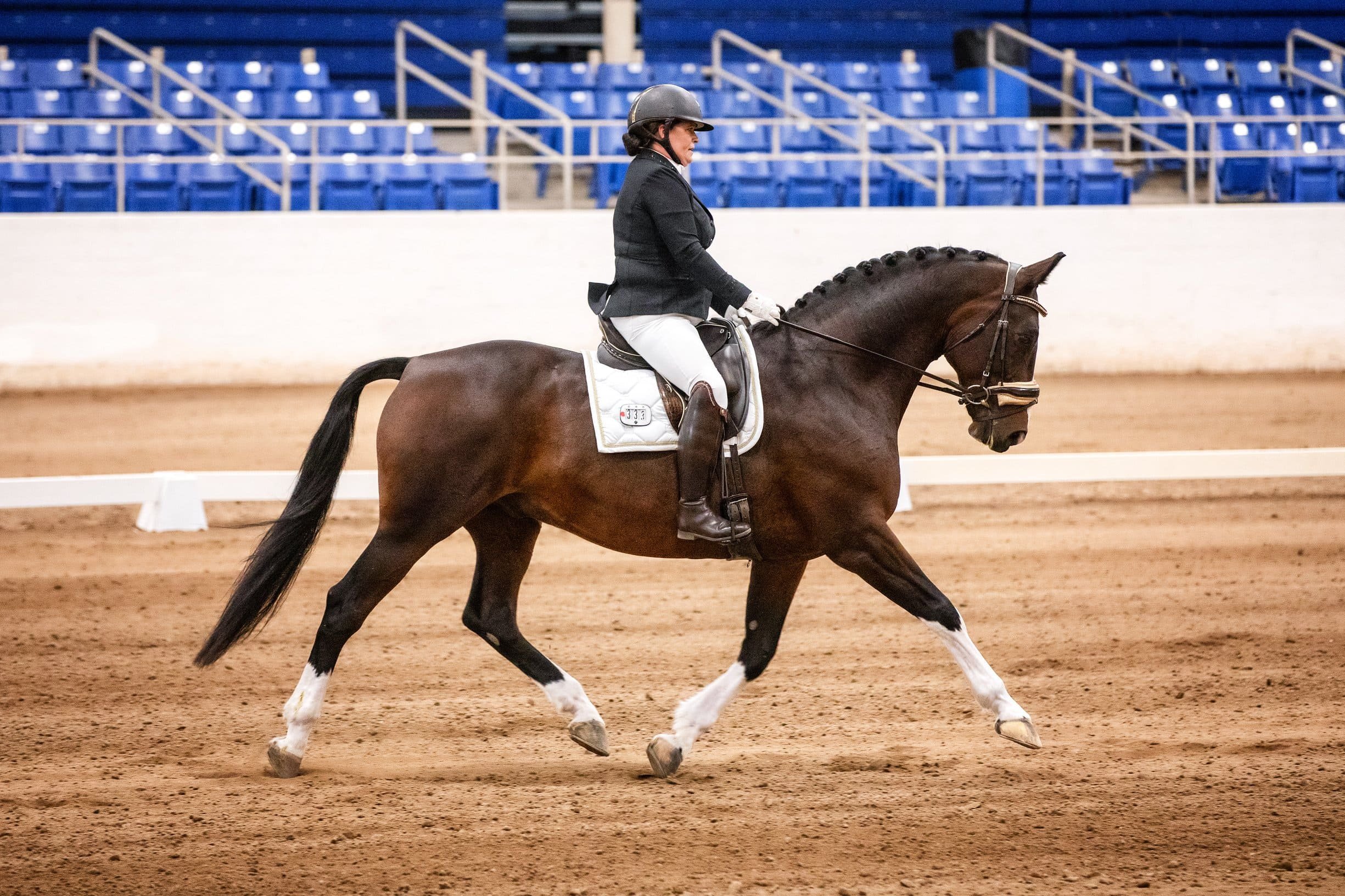
BRINGING POSITIVE REINFORCEMENT TRAINING TO THE TRADITIONAL HORSE WORLD

BRINGING POSITIVE REINFORCEMENT TRAINING TO THE TRADITIONAL HORSE WORLD

BRINGING POSITIVE REINFORCEMENT TRAINING TO THE TRADITIONAL HORSE WORLD
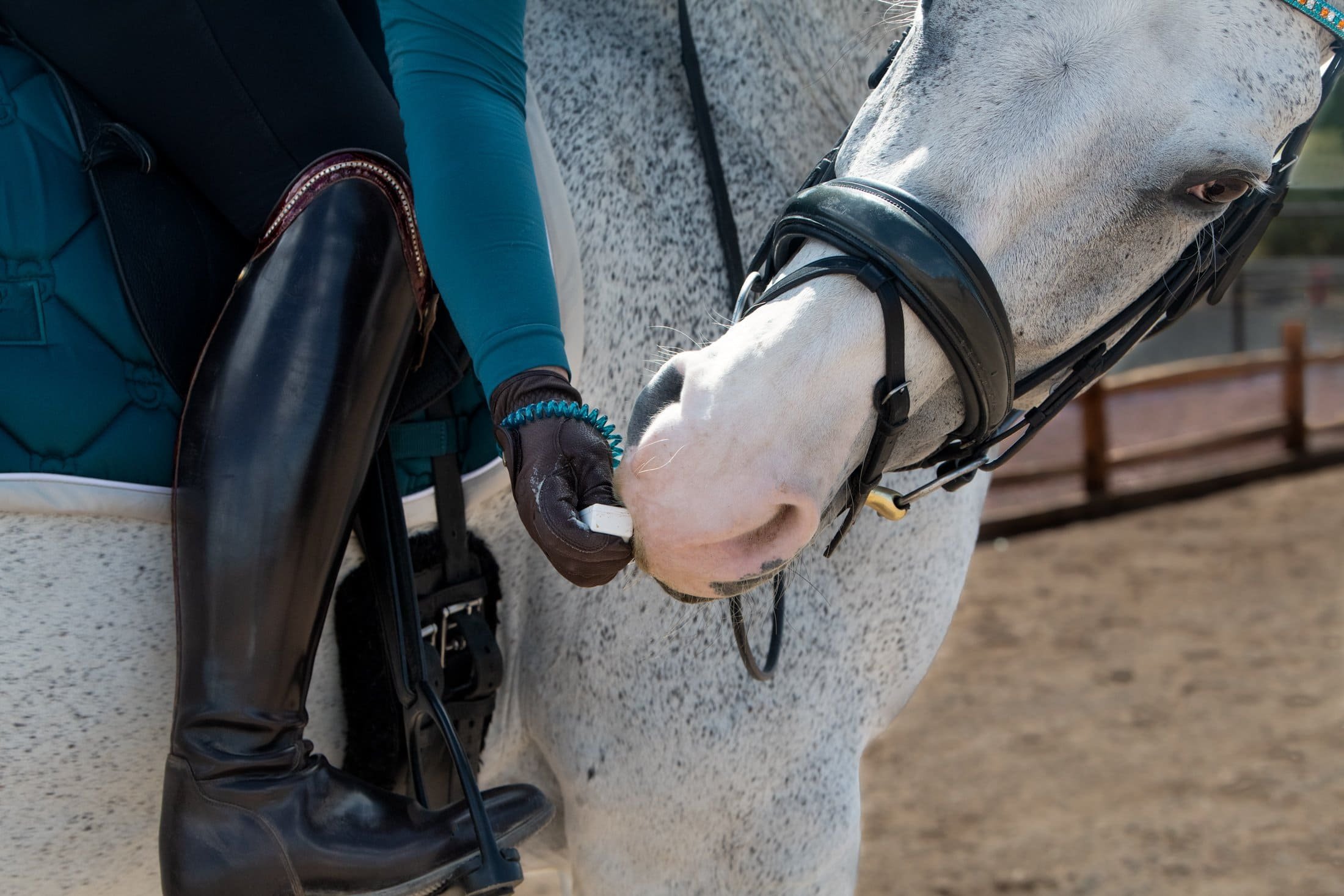
BRINGING POSITIVE REINFORCEMENT TRAINING TO THE TRADITIONAL HORSE WORLD

BRINGING POSITIVE REINFORCEMENT TRAINING TO THE TRADITIONAL HORSE WORLD
WELCOME TO VIA NOVA
Bringing Positive Reinforcement into the saddle
Priority to Positive®
5 CORE PRINCIPLES
Bringing positive reinforcement training into the saddle prioritizing a positive approach to training.
At Via Nova, we make positive reinforcement into practical tools that support the everyday rider and the competitive equestrian.
Our Priority to Positive® training method uses positive reinforcement in a way that respects the needs and goals of traditional and competitive equestrians, and, most importantly, the horse. Want to learn more? Check out our Resources and FAQs!
Understanding Motivation:
Desire Vs. Avoidance
Look at your "YES"!:
Flip your negative mindset
Create opportunity:
Use the positive reinforcement tools that your horse wants to learn
Shape toward what you want:
Use thin slices and building blocks
Set up for success:
It's not cheating to make it easy
Priority to Positive®
5 CORE PRINCIPLES
Bringing positive reinforcement training into the saddle prioritizing a positive approach to training.
At Via Nova, we make positive reinforcement into practical tools that support the everyday rider and the competitive equestrian.
Our Priority to Positive® training method uses positive reinforcement in a way that respects the needs and goals of traditional and competitive equestrians, and most importantly, the horse. Want to learn more? Check out our Resources and FAQs!
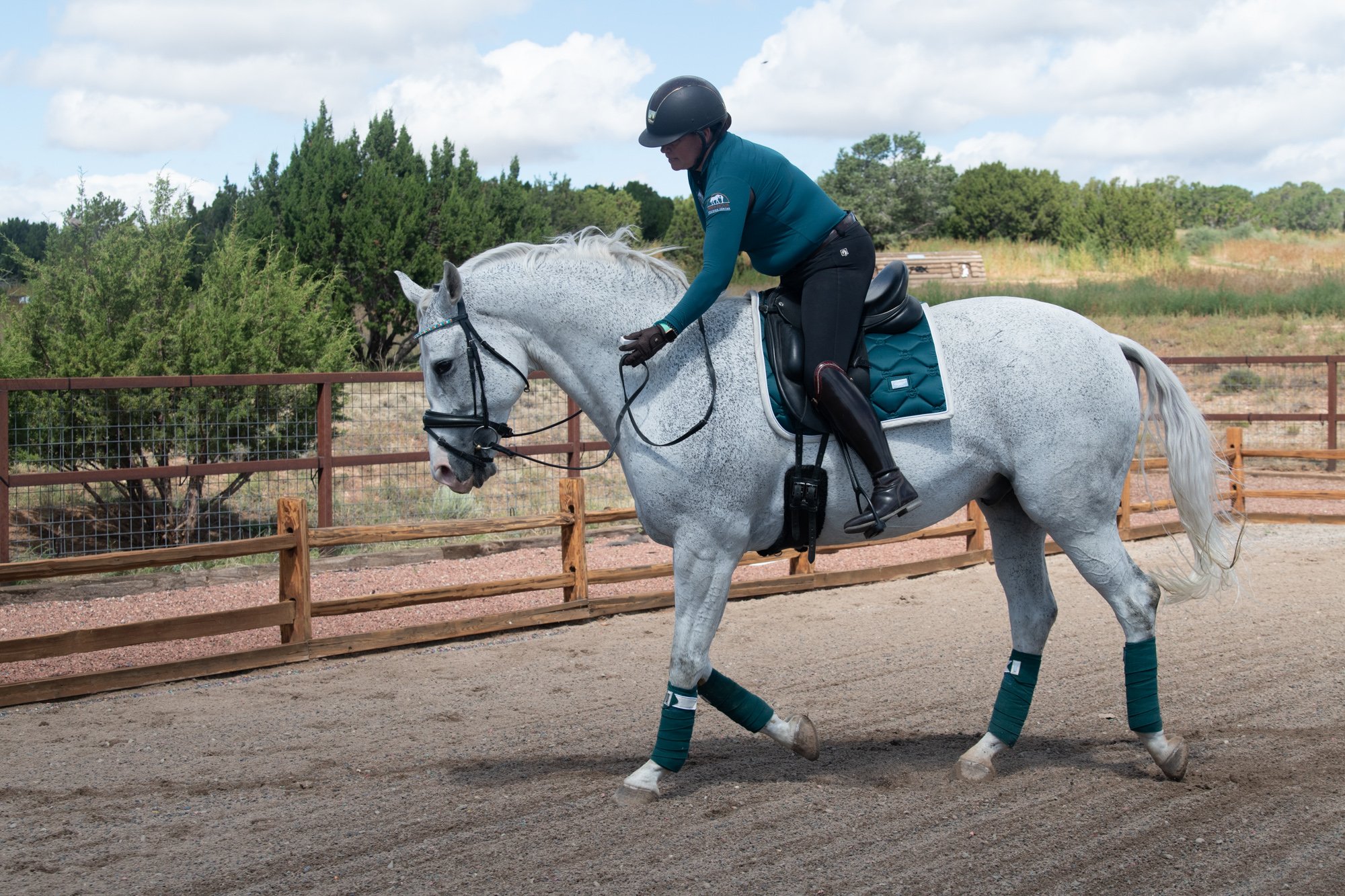




Ready to Embrace Positive Reinforcement Training?
TRAIN & LEARN WITH VIA NOVA
At Via Nova, our mission is to ignite a profound understanding of the remarkable benefits of Positive Reinforcement training within the equestrian community. We are dedicated to equipping equestrians with the transformative knowledge and practical tools essential for integrating these techniques into existing training practices. Through our passion for horses and unwavering commitment to their well-being, we strive to cultivate a community where positivity and understanding are at the forefront of every interaction. Our goal is not only to improve the performance in the ring but to deepen the bond and communication between horse and rider.
ACCESS
Access our online resources designed to help riders, trainers, and competitors learn valuable R+ techniques.
LEARN
Horse training is hands-on! Our Workshops in Sante Fe, NM, will give you practical skills and real-life experience using Positive Reinforcement with horses.
SOLVE
Problems with trailer loading? Is your horse fearful or aggressive? Experiencing nervousness in the show ring? We have solutions!
ADVANCE
Whether you’re an amateur or a pro, we’ll help you learn to Build a Happy Athlete. Explore a new road to training sport and performance horses!
Our Facilities
A TOUR OF VIA NOVA
Via Nova’s home, Terra Nova Equestrian Center, is both an exceptional boarding facility and an international center for Positive Reinforcement Training for horses and riders. With a total of 40 stalls in two barns, well-designed turn-out facilities, and a variety of indoor and outdoor options for multiple disciplines, we focus on our horses’ natural needs for movement and enrichment.
Would you like to visit us? Get in touch!
Job Opportunities
WANT TO BE PART OF THE TEAM?
Via Nova is on a mission to spread awareness about the benefits of applying Positive Reinforcement training when working with horses. We provide equestrians with the transformative knowledge and practical tools they need to implement these techniques in their training practices!
If you are a team player committed to a professional career working with horses and being a part of an evolution in horse training, Via Nova has space for you!

Upcoming Events & Clinics
TAKE YOUR JOURNEY TO THE NEXT LEVEL
About Us
ABOUT VIA NOVA
At Via Nova, we are providing new tools to traditional training methods. We conduct ongoing research to refine our methods, and through Positive Reinforcement training, we create happy, well-mannered, and confident horses for all aspects of equestrian life — from everyday barn activities to trail rides, arena work, and competitive events. Our programs are tailored to individual horses and riders, and include our on-site Training program, workshops, clinics, and consultations. We deeply value and respect diverse training objectives, empowering our community to witness tangible results and make informed training decisions at their own pace within their chosen discipline. Whether you're looking to enhance your horse's performance, improve communication, or simply deepen the bond with your equine partner, the Via Nova team is here to support you.
A Better Way to Communicate
OUR PHILOSOPHY
Via Nova Training is taking the principles of behavioral science and Positive Reinforcement (R+) into traditional equestrian pursuits.
Our aim is to integrate Positive Reinforcement training methods into the conventional horse world; providing skills and principles can help you succeed with any horse or any situation.
Horses, like humans, have different personalities and idiosyncrasies. Training them on their premises aids performance by enhancing their ability to focus and learn effectively.
By incorporating Positive Reinforcement techniques within familiar surroundings, we create a conducive learning atmosphere that promotes both mental and physical well-being - creating happy and confident athletes.
We are continuously training and testing our methods at the Terra Nova Training Center, a 40-stall, full-service boarding and training facility in Santa Fe, New Mexico, USA.
Our center functions as a dynamic laboratory, providing us with the opportunity to observe and enhance our approach continuously, guaranteeing optimal outcomes for our horses and riders. This commitment to continual research and application aims to establish a new benchmark for training excellence within the equestrian community, emphasizing the well-being and success of both horse and rider in equal measure.
Answers at a Glance: Your Top Queries Answered
FREQUENTLY ASKED QUESTIONS
-
Absolutely! Positive Reinforcement has already been used successfully by Olympic-level riders such as Beezie Madden to problem-solve and improve communication.
Positive Reinforcement (R+) can be used to train for competition and horse sports in multiple ways. With our PtP approach, we see endless opportunities from improving communication to building trust and confidence.
-
Rewards, markers, and cues used during training can be transferred to light aids under saddle.
Positive Reinforcement (R+ ) training techniques improve communication and build trust between the rider and horse. This means the rider has a willing and attentive partner in and out of the competition ring.
-
The most frequent food rewards come during the teaching (what we call “shaping”) of a behavior. For well-established behaviors, the horse doesn’t need to be rewarded every time.
Fading out the treats is a critical element for using R+ under saddle, but it must be done knowledgeably to maintain the horse’s willing motivation. Think about how you feel about working hard—you expect and deserve to get paid, but you don’t have to have a coin handed to you every minute. On the other hand, if your boss quit paying you entirely, or only paid you with pats on the back, you’d lose your motivation.
-
Absolutely. Positive Reinforcement training (R+) can solve problems that a horse is experiencing in day-to-day training or at competitions — like standing at the mounting block, fear of jumping over water, refusing to enter the arena, or even getting into a trailer to go home!
-
No. Of course, you can use Positive Reinforcement (R+) with traditional tack and aids. Via Nova’s Priority to Positive goal is to use standard riding equipment and aids for safety and to cue behavior—but not as a means to force behavior. The crucial difference is how these cues are trained and the horse’s motivation for responding to them.
-
People often associate Positive Reinforcement with clicker training — it is and isn’t.
The clicker is a marker that marks the behavior you want to reward, but a marker doesn’t need to be a clicker; it can be anything that’s consistent and distinct enough for the horse to recognize.
At Via Nova, we often use the letter “T” as a verbal marker, but it could be a whistle, a unique cluck — or while riding, a touch on the withers. You can choose what marker you want to use as long as it’s consistent and conditioned correctly.
-
As we all know, horses love food. By shaping behavior with markers, food rewards, and clear cues, they can associate their correct behavior with the reward — creating better communication and speeding up the learning and training process.
With less confusion, they’re more likely to perform behaviors that they might have resisted in traditional training. Positive Reinforcement can yield quick results once foundational behaviors are established. Like any type of training, the success and time it takes depends on both the trainer’s execution and the individual horse.
-
This is an important point. Positive Reinforcement doesn’t mean giving your horse treats in response to unwanted, pushy behavior. The first lesson we teach when we start training with Positive Reinforcement is “Manners.” The horses learn right away how to behave around food to receive their reward, and we emphasize that lesson for a lifetime.
In our PtP program, we also teach you the mechanical skills of how to handle the treats to discourage pushiness.
R+ Training
EXPLORE OUR RESOURCES
A Day in the Life of Via Nova: Priority to Positive® (PtP) Student Trainers
Via Nova was so happy to have our student trainers, Cami & Jasmine, kick off their Via Nova…






